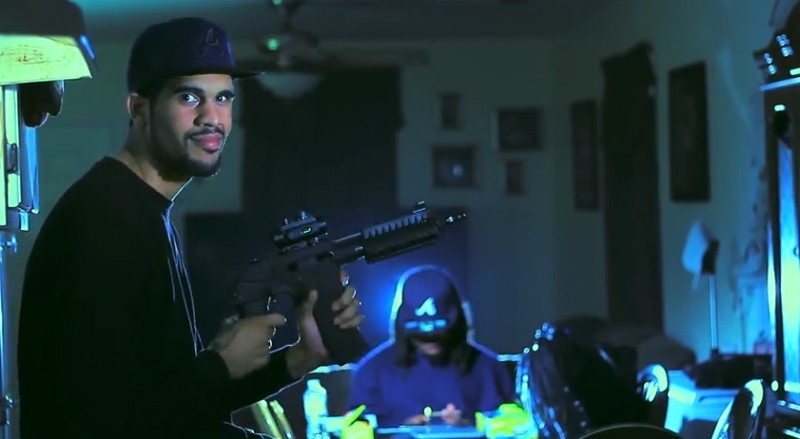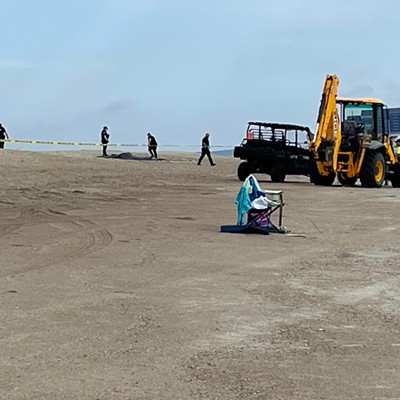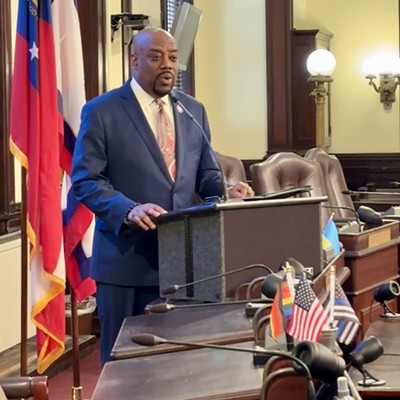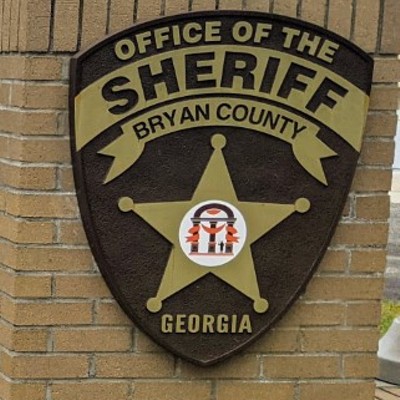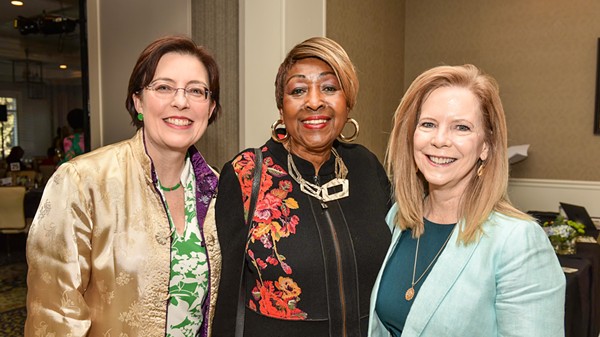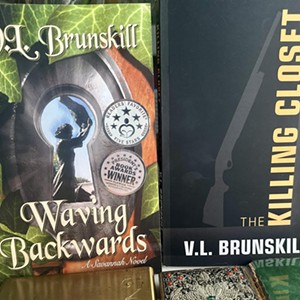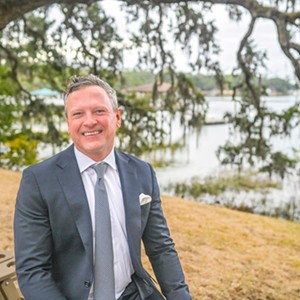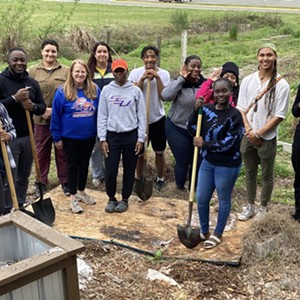Now I might just be that nigga who kill
gorillas lions tigers and bears
Bitch niggas better beware
Fuck it nigga I don’t care
My Glock be plastic
Man I call that bitch my Tupperware
— Charles ‘Mista Dee’ Smith, with Fly, “I Might”
CHARLES SMITH is dead now, shot by a policeman's own Glock on Augusta Avenue in West Savannah, after an altercation inside a police car on Sept. 18.
He was 29. Perhaps the only real surprise is that he made it that long.
When I see the video of his performance with Fly, though, he still seems very much alive. And two things come to mind:
• Sadness over the shame and waste of a young life thrown away in the pursuit of a toxically violent and misogynistic image of what it means to be a man.
• Smith is really good. Scary good, in every sense of the word. Simply in terms of art and entertainment, the song is powerful and the video is actually quite well-made.
The truth is that Smith aka Mista Dee could have had a totally legit career in the music business, beyond the many charges in his long arrest record. In fact, the only reason police confronted him that fateful Thursday morning was due to outstanding arrest warrants.
What went wrong? In the end, Smith couldn’t have a musical career and a life of crime. He chose his path and paid the price. If it hadn’t happened on Augusta Avenue, then it likely would have happened elsewhere, by someone else’s hand.
It’s an all-too-common choice in Savannah. “I Might” is a chillingly accurate and detailed breakdown of that choice, and of the perennial allure of the outlaw.
Since forever, young men have often felt alienated and violent, and often puff themselves up into something they’re maybe not.
To impress other young men, to impress women, to impress themselves.
That’s not a crime, unless you decide to turn the puffery into violent reality. As Smith did, as the Columbine shooters did, as the Virgina Tech shooter did, etc. etc.
One of society’s functions is to help young men make the ungainly transition from youthful swagger to mature confidence.
Most often, modern society fails at this. And fails our young men.
Not that anyone is looking for another white guy’s opinion, but I’m just old enough to have come of age before there was really such a thing as rap or hip hop as we now know it. And in my day, we were the problem children. Funny but true.
Millennials know Al Gore as the affable, avuncular environmental activist and climate change guy. But I know him as the clueless nimrod who said my music was evil and my friends and I were going to ruin America.
He and his wife Tipper started the whole stupid practice of putting warning labels on music with explicit lyrics—like those in Fly and Mista Dee’s video, and some of the lyrics in the rock ‘n’ roll I grew up listening to.
(I never forgave Gore for that and never voted for him. And those warning labels did nothing but increase sales.)
I didn’t become a drug-addled ax-murdering Satanist serial killer, as Al and Tipper warned I would. But at some point, Charles Smith apparently did make the mistake of buying into his own myth.
But in his case, which came first? The lyrics or the lifestyle? The video or the violence? The words or the weapons?
The answer has nothing to do with artistic expression. It has to do with wealth disparity, the impact of poverty, the destruction of the family unit, racial bifurcation, the troubled relationship between police and poorer communities, and of course the abundance of guns and the willingness to use them to settle any and all disputes—the latter perhaps being the biggest difference between Smith’s generation and mine.
Those aren’t excuses. Just reasons.
The comparisons between the unrest in Ferguson and Savannah are easy and convenient. And there are certainly similarities, chiefly that a white police officer killed a young black man under hazy circumstances. (Technically a young biracial man, but I suspect few people think that’s relevant. Certainly in his own neighborhood Smith was considered African-American.).
There are key differences: Savannah has a robust black political presence. We have a much more racially integrated police force.
And it must be said: We now have the negative example of Ferguson to learn from.
Mayor Edna Jackson deserves kudos for her quick, compassionate, statesmanlike performance in the wake of the shooting. She was pitch-perfect, assuaging the fears of the law-and-order types for whom young black men like Smith are alien beings, and the concerns of those on the streets of West Savannah who see police as an occupying force and everything as a conspiracy.
If there were a local version of the Nobel Peace Prize, Mayor Jackson should get it. But there’s still a long way to go, and all the core issues remain.
Some young men will make the right choices, others won’t. And it remains society’s responsibility to help them navigate the age-old temptation toward violence, and to remind them that bullets fly both ways, and guns never return our admiration.

